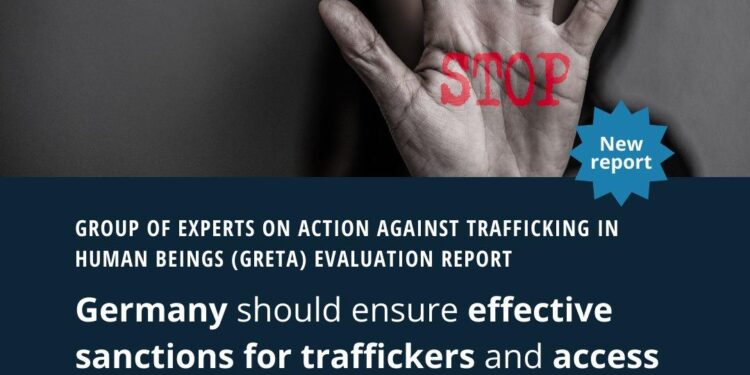The Group of Experts on Action against Trafficking in Human Beings (GRETA) has released its fourth report assessing the Slovak Republic’s efforts to combat human trafficking. Published by the Council of Europe, the report provides a comprehensive evaluation of the country’s progress in implementing anti-trafficking measures, highlighting both achievements and areas requiring further improvement. This latest assessment reflects ongoing challenges and the Slovak government’s commitment to enhancing victim protection and prevention strategies.
GRETA Highlights Progress and Persistent Challenges in Slovak Republic
The latest assessment by GRETA underscores notable advancements in the Slovak Republic’s approach to combating human trafficking, yet it also highlights areas requiring urgent attention. Key achievements include strengthened victim protection measures, enhanced cooperation between law enforcement agencies, and increased public awareness campaigns addressing the root causes of trafficking. Authorities have implemented improved victim identification protocols, resulting in more effective support systems tailored to survivors’ needs.
Despite these improvements, challenges persist that hinder comprehensive progress. GRETA points out ongoing issues such as insufficient resources for victim rehabilitation, gaps in cross-border coordination, and the need for more proactive prevention strategies targeting vulnerable groups. The report emphasizes the importance of sustained political commitment and increased funding to bridge these gaps effectively.
- Enhanced law enforcement training programs focused on victim-centered approaches
- Limited data collection impeding nuanced understanding of trafficking trends
- Under-reporting of cases due to social stigma and fear
- Need for multi-sectoral cooperation involving NGOs, governmental bodies, and international partners
| Category | Progress | Challenges | |||||||||||||||||||||||
|---|---|---|---|---|---|---|---|---|---|---|---|---|---|---|---|---|---|---|---|---|---|---|---|---|---|
| Victim Support | Improved shelters and assistance | Sustainable funding shortages | |||||||||||||||||||||||
| Law Enforcement | Specialized training programs | Limited human resources | |||||||||||||||||||||||
| Prevention | Detailed Insights into Human Trafficking Trends and Victim Support Measures The latest assessment reveals a dynamic shift in human trafficking patterns within the Slovak Republic, highlighting both emerging risks and areas of progress. Significantly, there has been a noticeable increase in cases involving vulnerable migrants and children exploited for labor and sexual purposes. Criminal networks are adapting by leveraging digital platforms to recruit and exploit victims, complicating detection and intervention efforts. Despite these challenges, enhanced cooperation between law enforcement agencies and civil society organizations has led to more timely identification of victims and disruption of trafficking chains. In terms of victim support, the report underscores the expansion of comprehensive assistance programs that emphasize trauma-informed care and reintegration strategies. Key improvements include:
Council of Europe Report Calls for Strengthened Legal Framework and Enhanced TrainingThe latest assessment highlights significant gaps in the current Slovak legal system that hinder effective prevention and prosecution of human trafficking. GRETA urges the authorities to bolster legislative measures by modernizing existing laws and introducing comprehensive regulations that address both prevention and victim protection more robustly. Furthermore, the report stresses the need for streamlined coordination among judicial, law enforcement, and social services to ensure a cohesive national response. Experts recommend prioritizing the following actions:
Training remains a critical area identified for improvement. GRETA calls for the expansion and regular updating of specialized training programs targeting prosecutors, judges, police officers, and social workers alike. These initiatives should focus on increasing sensitivity to victims’ needs, recognizing trafficking indicators, and applying victim rights effectively. Tailored workshops and inter-agency simulations are recommended to foster practical knowledge and improve cross-sector cooperation across the country.
The ConclusionThe publication of GRETA’s fourth report on the Slovak Republic marks a continued commitment to monitoring and combating human trafficking across Europe. As the Council of Europe highlights both progress and ongoing challenges, the Slovak authorities are called upon to intensify their efforts in victim protection, prevention, and prosecution. This latest assessment provides a critical framework for policymakers and stakeholders aiming to strengthen national responses and uphold fundamental human rights in the fight against trafficking. ADVERTISEMENT |
















